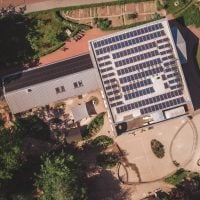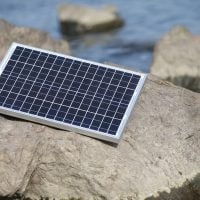Deadline: 9-Mar-23
The European Commission (EC) is inviting Proposals for the Programme Entitled “Support Reforms of Research Assessment in the European Research Area”.
The proposals should develop close cooperation, share knowledge and evidence, and build on various institutional, national and international initiatives, including DORA, GRC, UNESCO and the European Open Science Cloud (EOSC). Proposals should also build on the results of projects funded under earlier Framework Programme actions.
This action aims at supporting the reform of the assessment of research projects, researchers, research units, and research institutions. The action consists of three parts, all of which must be addressed:
- The first part aims at supporting the operation of the coalition. This includes support to the sharing of information, mutual learning and awareness raising, across individual organisations, umbrella organisations, and initiatives, involved in the coalition and beyond, including with national and regional authorities. The action is expected to support workshops, working groups and other tools to: raise awareness, exchange experience and disseminate information on institutional changes, contribute to the development and piloting of metrics needed for research assessment; identify, monitor and showcase case studies, including good practices and lessons learnt, and develop and share guidance and recommendations for research organisations and policy-makers;
- The second part involves financial support to third parties, by launching ‘cascading grant’ call(s) to support institutions from across the ERA, notably those engaged in the coalition approach, to implement sustainable institutional changes to reform and improve research assessment criteria and processes. This may require support services to be developed and provided to the beneficiary third party organisations. The ‘cascading grant’ mechanism is expected to contribute to institutional changes in a significant number of organisations (e.g., 40-50 individual organisations involved, of different types and across different geographical areas). As such, a significant proportion of the funding should be allocated to this mechanism, and one or more call(s) for proposals should be launched;
- The third part aims at international cooperation on research assessment. The action will envisage international cooperation with entities outside the EU Member States and Associated Countries. The action will promote internationally the European efforts, will support exchange of information and explore opportunities for aligning policies, and will seek to attract non-European organisations to join the coalition.
Scope
- The way research projects, researchers, research units, and research institutions are assessed is fundamental for a well-functioning research and innovation system. The research and innovation system is undergoing major transformations with diversification of desired research outputs not restricted anymore to publications, and of research tasks and required skills; with a culture of sharing of knowledge and tools and of open collaboration (including societal engagement) becoming mainstream; and with a growing need of multi-disciplinary approaches and collaboration to tackle ever more complex scientific questions and societal challenges. However, the current system often uses limited methods to assess the quality, performance and impact of research, favouring quantity of results of individual researchers and the impact factor of the venue where they are published.
- Several institutions including research funders and universities, in Europe and beyond, are currently reforming the assessment systems of their research and researchers. At a global level, the San Francisco Declaration on Research Assessment (DORA) aims at improving how the output of scientific research is evaluated. The Recommendation on Open Science adopted by the United Nations Educational, Scientific and Cultural Organization (UNESCO) in November 2021 calls for a review of research assessment systems to align them with the principles of open science. The Global Research Council (GRC) held a conference[3] in 2020 on “Responsible Research Assessment” and established a dedicated working group in 2021. The European Research Area ERA Policy Agenda for 2022-2024[4], adopted by the Council of the European Union on 26 November 2021, includes a priority action for reforming the assessment systems for research, researchers and institutions to improve their quality, performance and impact. Accordingly, the European Commission is taking steps to facilitate an agreement between research funders, research performing organisations, national/regional evaluation agencies or authorities, and other stakeholders like learned societies, to reform research assessment criteria and processes in willing organisations, along commonly agreed principles and actions. In 2021, consultation of stakeholders identified convergence on 10 principles expected to guide the reform of research assessment.
- The establishment of a coalition of committed organisations is expected to accelerate changes towards research assessment systems that promote qualitative judgement with unbiased peer-review, supported by a more responsible use of quantitative indicators. The reformed research assessment systems should consider a more diverse set of research cultures and outputs, by valuing not only publications but also other research outputs such as data sets, software, models, workflows, methods, etc., and proper conduct including integrity and gender equality, equal opportunities and inclusiveness. The reformed systems are expected to reward open collaboration as well as early knowledge and data sharing, as these practices enable good science. It should also reward the diversity of tasks of researchers, and consider the different contributions to the work of teams.
Funding Information
-
The check will normally be done for the coordinator if the requested grant amount is equal to or greater than EUR 500 000, except for:
- Public bodies (entities established as a public body under national law, including local, regional or national authorities) or international organisations; and
- Cases where the individual requested grant amount is not more than EUR 60 000 (lowvalue grant).
Eligible Activities
-
Eligible activities are the ones described in the call conditions. Applications will only be considered eligible if their content corresponds, wholly or in part, to the topic description for which it is submitted. Projects must focus exclusively on civil applications and must not:
- Aim at human cloning for reproductive purposes;
- Intend to modify the genetic heritage of human beings which could make such changes heritable (except for research relating to cancer treatment of the gonads, which may be financed);
- Intend to create human embryos solely for the purpose of research, or for the purpose of stem cell procurement, including by means of somatic cell nuclear transfer.
- Projects must, moreover, comply with EU policy interests and priorities (environment, social, security, industrial policy, etc.).
Expected Outcomes
-
Projects are expected to contribute to the following expected outcomes:
- Support and contribute to the implementation of institutional changes for reforming research assessment (i.e., the assessment of research projects, researchers, research units, and research institutions), in line with Action 3 of the ERA Policy Agenda actions and in support of Action 1;
- Connection of existing organisations and initiatives for reforms of research assessment, facilitating the exchange of information and mutual learning, and stimulating consensus building among the stakeholders;
- Recommendations for policy-makers, research funding and performing organisations, higher education institutions and other research and innovation actors on how to best implement institutional changes to research assessment;
- Global outreach of European efforts to reform research assessment and reinforced international cooperation on evolutions in research assessment.
-
These targeted outcomes in turn contribute to medium and long-term impacts:
- Research proposals and researchers evaluated in an unbiased manner on their intrinsic merits and performance rather than on the number of publications and where these are published;
- Researchers evaluated based on a broader range of research outputs and tasks (including open science practices);
- Researchers benefit from attractive careers, regardless of gender or other social characteristics;
- Modernised higher education sector, benefitting from improvements to the research assessment systems (including for performance-based funding).
Eligibility Criteria
- Any legal entity, regardless of its place of establishment, including legal entities from nonassociated third countries or international organisations (including international European research organisations ) is eligible to participate (whether it is eligible for funding or not), provided that the conditions laid down in the Horizon Europe Regulation have been met, along with any other conditions laid down in the specific call topic.
- A ‘legal entity’ means any natural or legal person created and recognised as such under national law, EU law or international law, which has legal personality and which may, acting in its own name, exercise rights and be subject to obligations, or an entity without legal personality.
- Beneficiaries and affiliated entities must register in the Participant Register before submitting their application, in order to get a participant identification code (PIC) and be validated by the Central Validation Service before signing the grant agreement. For the validation, they will be asked to upload the necessary documents showing their legal status and origin during the grant preparation stage. A validated PIC is not a prerequisite for submitting an application.
-
Specific cases
- Affiliated entities: Affiliated entities (i.e. entities with a legal or capital link to a beneficiary which participate in the action with similar rights and obligations to the beneficiaries, but which do not sign the grant agreement and therefore do not become beneficiaries themselves) are allowed, if they are eligible for participation and funding.
- Associated partners — Associated partners (i.e. entities which participate in the action without signing the grant agreement, and without the right to charge costs or claim contributions) are allowed, subject to any conditions regarding associated partners set out in the specific call conditions.
- Entities without legal personality — Entities which do not have legal personality under their national law may exceptionally participate, provided that their representatives have the capacity to undertake legal obligations on their behalf, and offer guarantees to protect the EU’s financial interests equivalent to those offered by legal persons.
- EU bodies — Legal entities created under EU law including decentralised agencies may be part of the consortium, unless provided for otherwise in their basic act.
For more information, visit European Commission.









































